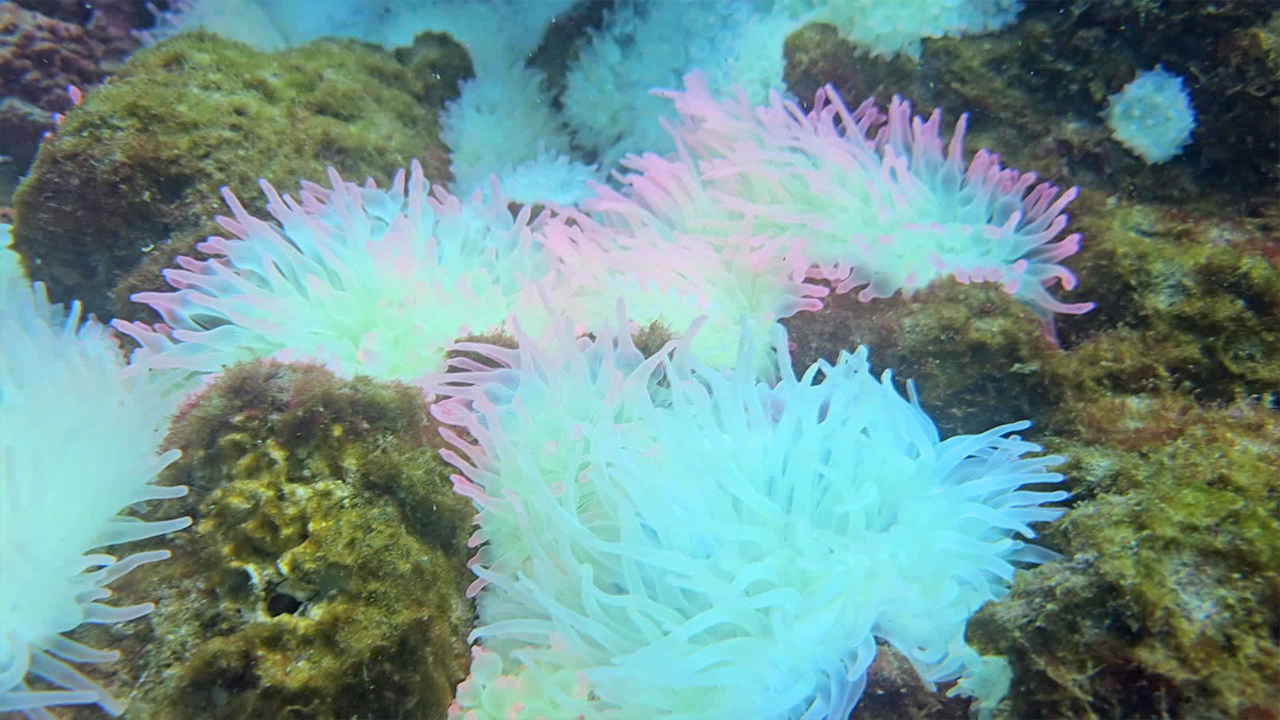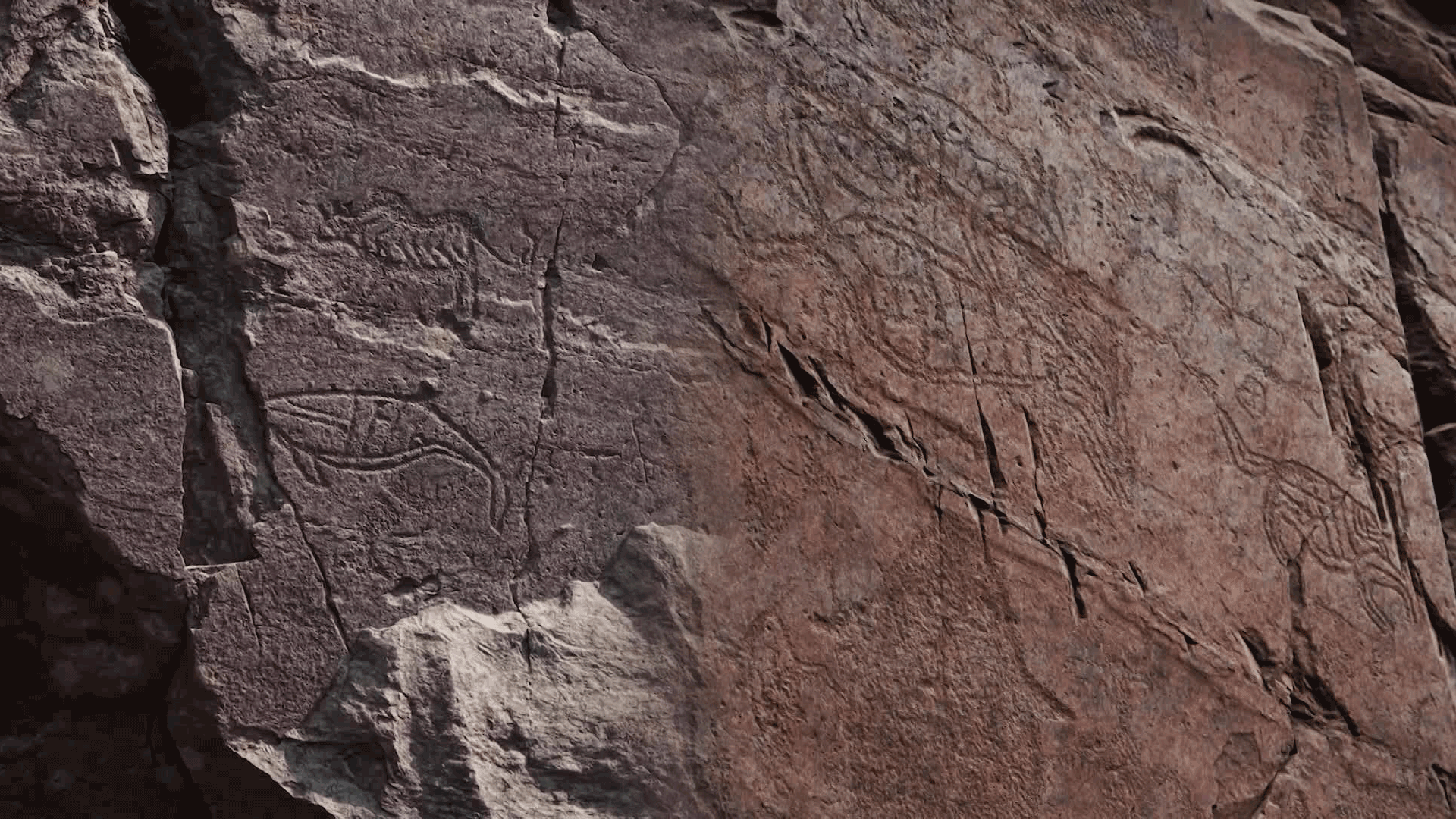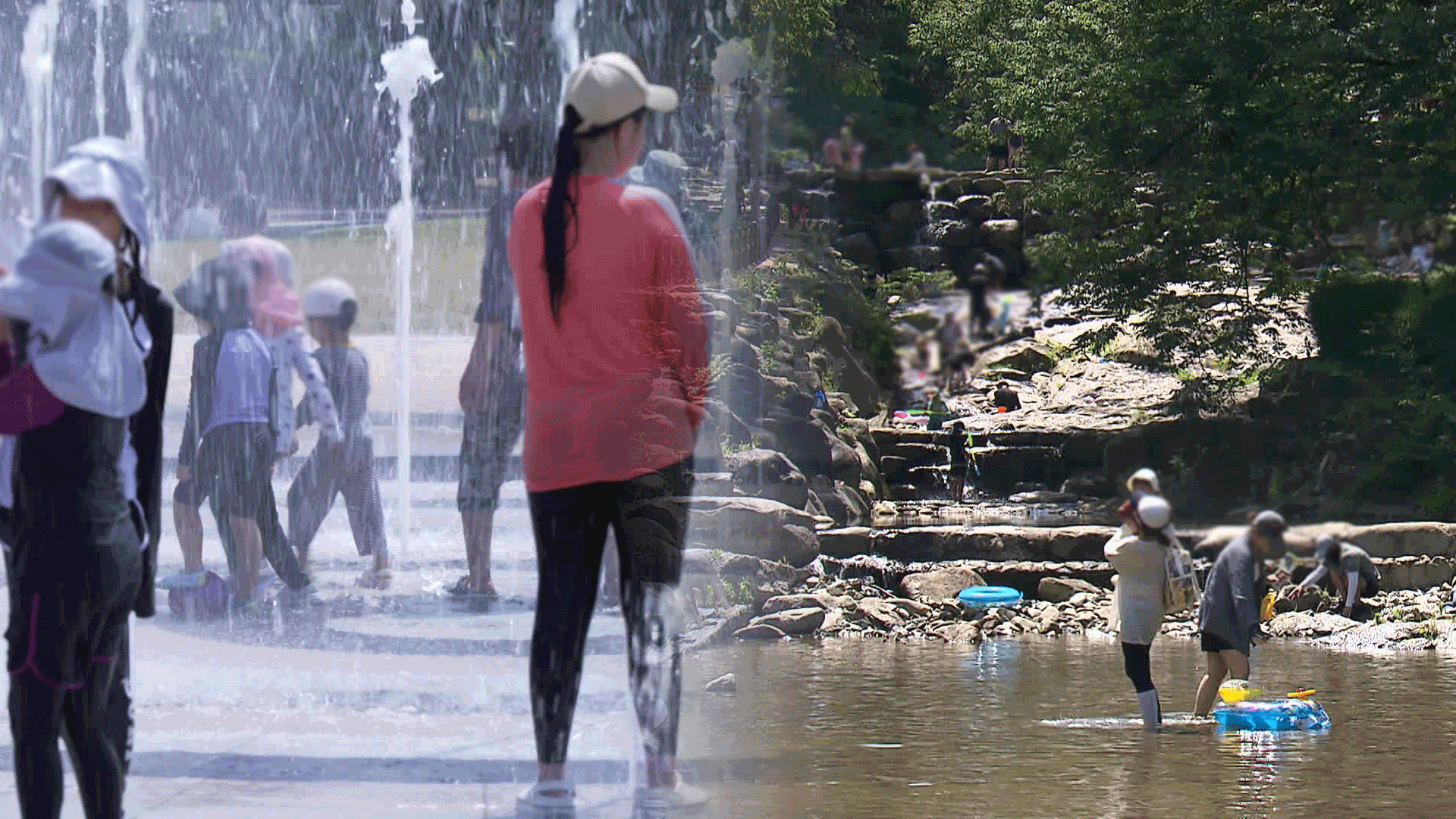Jeju's marine ecosystem under threat as tropical species replace native life
입력 2024.10.28 (23:48)
읽어주기 기능은 크롬기반의
브라우저에서만 사용하실 수 있습니다.
[Anchor]
The marine ecosystem is facing a significant threat due to the ongoing high-temperature phenomenon.
KBS has reported from the waters of Jeju, where the famous local fish, pearl-spot chromis, has disappeared, and tropical fish species have been observed.
Additionally, subtropical sea anemones have been spotted in local fishing grounds.
This is Moon Jun-young reporting.
[Report]
In the southern waters of Jeju Island.
The underwater scene appears white, as if covered in snow.
White objects swaying in the current are the giant carpet anemones and the club-tipped anemones that live in subtropical waters.
They have surged in numbers recently due to the high-temperature phenomenon, densely covering the seabed.
[Jang Soon-ja/President of the Haenyeo Association in Sinheung 1-ri, Namwon-eup, Seogwipo City: "The anemones are white, and there are many of them, looking like mushrooms. There’s nothing to see in the sea because the water is too warm."]
Beomseom Island, a natural reserve with breathtaking underwater scenery.
The once-dominant pearl-spot chromis is nowhere to be found, replaced entirely by the tropical fish, the blue damselfish.
They swim in groups so numerous that they are beyond counting.
[Choi Wan-jung/Scuba Diving Instructor: "The blue damselfish seems to have increased by more than ten times. Since last November, I haven't seen any seaweed or anything."]
On the rocky seabed, only the bleached skeletons of the coral remain starkly visible.
The vibrant coral colonies and green underwater forests have long since disappeared.
The differences compared to the past are becoming more pronounced.
[Yang Hyun-seong/Researcher at the Jeju Research Institute of the Korea Institute of Ocean Science and Technology: "High-temperature warnings were continuously issued for two months in August and September. I believe that the organisms inhabiting the Jeju waters have been greatly affected."]
Last summer, the waters turned into a boiling pot over 30 degrees Celsius, causing coral colonies to melt away, leading to ongoing damage in the waters of Jeju.
The once-rich marine ecosystem is transforming into a barren sea.
This is KBS News, Moon Jun-young reporting.
The marine ecosystem is facing a significant threat due to the ongoing high-temperature phenomenon.
KBS has reported from the waters of Jeju, where the famous local fish, pearl-spot chromis, has disappeared, and tropical fish species have been observed.
Additionally, subtropical sea anemones have been spotted in local fishing grounds.
This is Moon Jun-young reporting.
[Report]
In the southern waters of Jeju Island.
The underwater scene appears white, as if covered in snow.
White objects swaying in the current are the giant carpet anemones and the club-tipped anemones that live in subtropical waters.
They have surged in numbers recently due to the high-temperature phenomenon, densely covering the seabed.
[Jang Soon-ja/President of the Haenyeo Association in Sinheung 1-ri, Namwon-eup, Seogwipo City: "The anemones are white, and there are many of them, looking like mushrooms. There’s nothing to see in the sea because the water is too warm."]
Beomseom Island, a natural reserve with breathtaking underwater scenery.
The once-dominant pearl-spot chromis is nowhere to be found, replaced entirely by the tropical fish, the blue damselfish.
They swim in groups so numerous that they are beyond counting.
[Choi Wan-jung/Scuba Diving Instructor: "The blue damselfish seems to have increased by more than ten times. Since last November, I haven't seen any seaweed or anything."]
On the rocky seabed, only the bleached skeletons of the coral remain starkly visible.
The vibrant coral colonies and green underwater forests have long since disappeared.
The differences compared to the past are becoming more pronounced.
[Yang Hyun-seong/Researcher at the Jeju Research Institute of the Korea Institute of Ocean Science and Technology: "High-temperature warnings were continuously issued for two months in August and September. I believe that the organisms inhabiting the Jeju waters have been greatly affected."]
Last summer, the waters turned into a boiling pot over 30 degrees Celsius, causing coral colonies to melt away, leading to ongoing damage in the waters of Jeju.
The once-rich marine ecosystem is transforming into a barren sea.
This is KBS News, Moon Jun-young reporting.
■ 제보하기
▷ 카카오톡 : 'KBS제보' 검색, 채널 추가
▷ 전화 : 02-781-1234, 4444
▷ 이메일 : kbs1234@kbs.co.kr
▷ 유튜브, 네이버, 카카오에서도 KBS뉴스를 구독해주세요!
- Jeju's marine ecosystem under threat as tropical species replace native life
-
- 입력 2024-10-28 23:48:50

[Anchor]
The marine ecosystem is facing a significant threat due to the ongoing high-temperature phenomenon.
KBS has reported from the waters of Jeju, where the famous local fish, pearl-spot chromis, has disappeared, and tropical fish species have been observed.
Additionally, subtropical sea anemones have been spotted in local fishing grounds.
This is Moon Jun-young reporting.
[Report]
In the southern waters of Jeju Island.
The underwater scene appears white, as if covered in snow.
White objects swaying in the current are the giant carpet anemones and the club-tipped anemones that live in subtropical waters.
They have surged in numbers recently due to the high-temperature phenomenon, densely covering the seabed.
[Jang Soon-ja/President of the Haenyeo Association in Sinheung 1-ri, Namwon-eup, Seogwipo City: "The anemones are white, and there are many of them, looking like mushrooms. There’s nothing to see in the sea because the water is too warm."]
Beomseom Island, a natural reserve with breathtaking underwater scenery.
The once-dominant pearl-spot chromis is nowhere to be found, replaced entirely by the tropical fish, the blue damselfish.
They swim in groups so numerous that they are beyond counting.
[Choi Wan-jung/Scuba Diving Instructor: "The blue damselfish seems to have increased by more than ten times. Since last November, I haven't seen any seaweed or anything."]
On the rocky seabed, only the bleached skeletons of the coral remain starkly visible.
The vibrant coral colonies and green underwater forests have long since disappeared.
The differences compared to the past are becoming more pronounced.
[Yang Hyun-seong/Researcher at the Jeju Research Institute of the Korea Institute of Ocean Science and Technology: "High-temperature warnings were continuously issued for two months in August and September. I believe that the organisms inhabiting the Jeju waters have been greatly affected."]
Last summer, the waters turned into a boiling pot over 30 degrees Celsius, causing coral colonies to melt away, leading to ongoing damage in the waters of Jeju.
The once-rich marine ecosystem is transforming into a barren sea.
This is KBS News, Moon Jun-young reporting.
The marine ecosystem is facing a significant threat due to the ongoing high-temperature phenomenon.
KBS has reported from the waters of Jeju, where the famous local fish, pearl-spot chromis, has disappeared, and tropical fish species have been observed.
Additionally, subtropical sea anemones have been spotted in local fishing grounds.
This is Moon Jun-young reporting.
[Report]
In the southern waters of Jeju Island.
The underwater scene appears white, as if covered in snow.
White objects swaying in the current are the giant carpet anemones and the club-tipped anemones that live in subtropical waters.
They have surged in numbers recently due to the high-temperature phenomenon, densely covering the seabed.
[Jang Soon-ja/President of the Haenyeo Association in Sinheung 1-ri, Namwon-eup, Seogwipo City: "The anemones are white, and there are many of them, looking like mushrooms. There’s nothing to see in the sea because the water is too warm."]
Beomseom Island, a natural reserve with breathtaking underwater scenery.
The once-dominant pearl-spot chromis is nowhere to be found, replaced entirely by the tropical fish, the blue damselfish.
They swim in groups so numerous that they are beyond counting.
[Choi Wan-jung/Scuba Diving Instructor: "The blue damselfish seems to have increased by more than ten times. Since last November, I haven't seen any seaweed or anything."]
On the rocky seabed, only the bleached skeletons of the coral remain starkly visible.
The vibrant coral colonies and green underwater forests have long since disappeared.
The differences compared to the past are becoming more pronounced.
[Yang Hyun-seong/Researcher at the Jeju Research Institute of the Korea Institute of Ocean Science and Technology: "High-temperature warnings were continuously issued for two months in August and September. I believe that the organisms inhabiting the Jeju waters have been greatly affected."]
Last summer, the waters turned into a boiling pot over 30 degrees Celsius, causing coral colonies to melt away, leading to ongoing damage in the waters of Jeju.
The once-rich marine ecosystem is transforming into a barren sea.
This is KBS News, Moon Jun-young reporting.
-
-

문준영 기자 mjy@kbs.co.kr
문준영 기자의 기사 모음
-
이 기사가 좋으셨다면
-
좋아요
0
-
응원해요
0
-
후속 원해요
0















이 기사에 대한 의견을 남겨주세요.